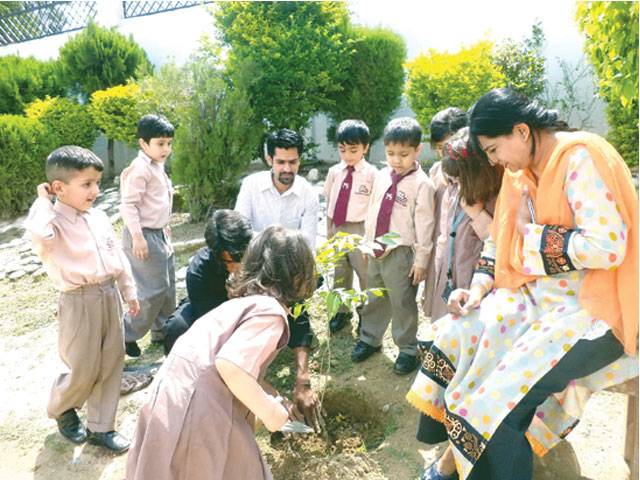LAHORE - As the world marks this year’s World Environment Day with a theme Think, Eat, Save by launching an anti-food waste and food loss campaign, it is sickening to be living in a land marred by severe food scarcity and huge waste at the same time.
An estimated 40-50pc potential and actual food is lost or wasted each year in Pakistan, where as much as 60 per cent of its over 180 million people are either food insecure or downright malnourished.
Globally, 1.3 billion tonnes of food is wasted every year. This is equivalent to the amount produced in the whole of sub-Saharan Africa. Besides the issues relating to the climate and physical environment, culture has much to do with the massive losses of fresh and ripened or stored foodstuff. Next time you attend a wedding, just be a passive participant and watch people ravaging the food, and you will feel the gravity of the problem. But it is not just food wastage that bedevils us, our overall environmental situation too is critical. In fact, we are in an environmental mess.
Along the Indus Delta, unpredictable torrential rains are damaging the wheat harvest. Melting glaciers in the Hindu Kush-Karakoram Himalaya mountain range, which provides water for 90pc crops, are causing devastating flash floods and disrupting water supplies.
Scientists say that in the past two decades, the average temperature in Pakistan has risen by 0.57 degree Celsius and the country has faced 141 extreme weather events -- including a 2010 deluge that displaced 20 million people. Experts say the whole climatalogical system is being disrupted. As temperatures continue to rise, they warn against too early monsoons or too much of much of them. It's already happening in both India and Pakistan.
Environment protection and climate change is somewhere down the priority list of a state grappling with terrorism, sectarian violence, energy crisis and water scarcity.
Activists and government officials say there is not enough money to pay for the country's $13 billion to $32 billion in annual climate change needs. And interestingly, a former Pakistani environment minister recently projected that climate change could cost the economy up to $14 billion per year.
So here is the deal - either we just lose this much money and see these losses go soaring as our environment worsens over time, or we invest this amount in our future and save it. The best sector to make this investment is education. Our children must be taught what they are going to face in future and how best they could deal with it.
Saturday, April 20, 2024
The best future investment

Pak economy improving, funds will be provided on request: IMF
9:57 PM | April 19, 2024
Minister advocates for IT growth with public-private collaboration
9:57 PM | April 19, 2024
Judges' letter: IHC seeks suggestions from all judges
9:55 PM | April 19, 2024
Formula 1 returns to China for Round 5
9:05 PM | April 19, 2024
Germany head coach Julian Nagelsmann extends contract till 2026 World Cup
9:00 PM | April 19, 2024
A Tense Neighbourhood
April 19, 2024
Dubai Underwater
April 19, 2024
X Debate Continues
April 19, 2024
Hepatitis Challenge
April 18, 2024
IMF Predictions
April 18, 2024
Kite tragedy
April 19, 2024
Discipline dilemma
April 19, 2024
Urgent plea
April 19, 2024
Justice denied
April 18, 2024
AI dilemmas unveiled
April 18, 2024
ePaper - Nawaiwaqt
Advertisement
Nawaiwaqt Group | Copyright © 2024





